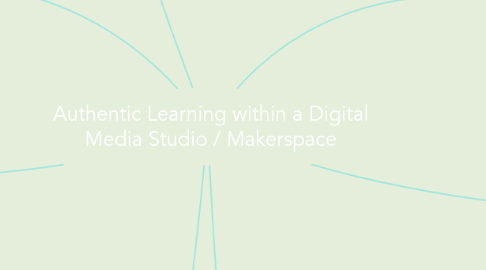Authentic Learning within a Digital Media Studio / Makerspace
by Julio Palacios

1. Tech and software trends are gearing towards mobile and personal devices
1.1. Where do camcorders, DSLRs and professional level software live in a world of high-resolution mobile phone cameras, robust entry-level software and tablets?
2. Hands-on approach to learning technology
2.1. Assisting users without integrating oneself into their project
2.2. Does this satisfy ALL learning styles?
2.3. Are the skills gained tethered to the makerspace and its technology?
3. Do makerspaces devalue classroom learning?
3.1. Centralizes learning away from the classroom
3.1.1. Move away from mobile / BYOD / shared technology that can be deployed in traditional classroom spaces.
3.2. Siphons funding
3.2.1. Future proofing
3.2.2. Chasing technology trends
3.2.2.1. Reflecting industry standards
3.2.3. Spotlighted within institutions
3.3. Temptation to only look for answers through technology and not humanities
4. Social Media
4.1. For many users, value is added to digital projects if it compliments social media platforms - Instagram Effect
4.2. Social media is becoming integral tool to many. Professionally, personally and socially.
4.3. More and more projects are inspired by content found on social medias
4.4. Social media can be distracting, confining social growth, and perpetuating ecochambering
5. Digital assignment integration in curriculum
5.1. Resistance from educators and content experts who are not accustomed to working / teaching with technology
5.2. Should makerspaces provide post-production feedback? Grading?
5.3. Do educators need to be proficient in the digital assignments they assign?
6. Digital Literacy vs. Digital Skills
6.1. Are users provided with the opportunity to develop as a digital citizen rather than simply learning to contribute content to their digital environment?
6.2. Without digital literacy are echo chambers perpetuated?
7. Troubleshooting
7.1. Is there an expectation for users to independently troubleshoot when working on a digital assignment?
7.2. How is troubleshooting captured / graded as a learning experience?


